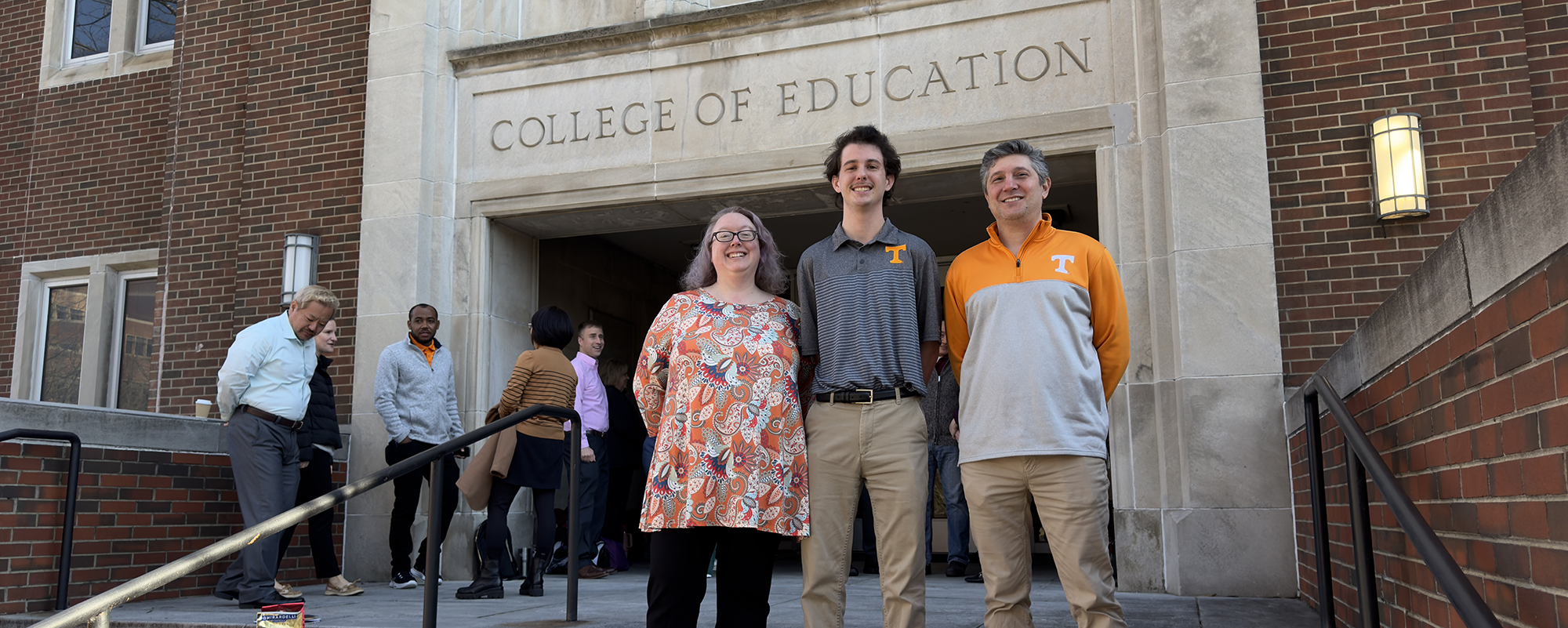The overall focus of the program is to provide students with the requisite skills and experiences essential for three types of professional careers:
- as an evaluation, applied statistics, and assessment or measurement faculty member in higher education settings,
- as an external evaluator employed by an evaluation group or organization providing external evaluation services, or
- as an internal evaluator or in-house ESM consultant serving the needs of the organization in which they are employed.
Located within the Department of Educational Leadership & Policy Studies (ELPS), the ESM program integrates evaluation, statistics, and measurement theory, content knowledge, technical skills, and highly relevant and meaningful field experiences to enable graduates to function as esteemed professionals, productive scholars, and leaders in their sub-fields of interest.
About the PhD Program
Program Brochure & Information
Intended Audience
The ESM program is intended for students with education, social science, applied statistics, and/or related academic backgrounds seeking employment within the growing fields of applied evaluation, assessment, and statistics. These fields have grown substantially in response to the needs of the federal and state governments, non-profit organizations and foundations, and private sector entities to demonstrate and continually improve the effectiveness of their programs and services. The ESM doctoral program is based squarely upon the needs of students seeking to enter ESM fields, expand opportunities within their current professional situation, or prepare for an academic career and engage in research.
Program Features
There are several unique features of the ESM program:
- Focused Competency Development: All students are exposed to a solid academic core of specific knowledge, skills and professional dispositions in the form of foundational ESM theory, concepts, and applied competencies.
- Theory to Practice Course-Based Field Experiences: Each student is required to engage in multiple hands-on fields experiences linked to specific ESM courses content, enabling the students to personally experience the application of theory to real-world practical problems.
- Theory to Practice Internships Targeted to Student Interests: Students are required to fulfill two evaluation internships in organizations settings (university, community-based, or other settings) in an area of professional or career interests.
- Highly Experienced & Engaged Faculty: The ESM faculty are highly experienced and productive scholars with a mix of expertise and experience in research, evaluation, assessment, and applied statistics. The current three faculty members have many decades of combined experience directly relevant to the ESM program. All ESM faculty are also actively engaged in major professional associations (e.g., American Evaluation Association, Educational Research Association, American Psychological Association).
- Regular Access to One-on-One Faculty Support & Guidance: Advanced ESM courses, focusing on the application of knowledge and skills, have a small class size which provide students with ideal learning opportunities for targeted group and one-on-one instruction.
Student Goals & Career Opportunities
Program Goals for Students
Upon completion of the ESM doctoral program, students will have gained: a) knowledge of foundational evaluation, applied research methodology, and measurement concepts, theories, and applications; b) competency with research designs that include and integrate experimental, quasi-experimental, qualitative, and mixed-method approaches; c) extensive hands-on field experience in the application of evaluation, research, and methodologies to contemporary educational and social problems; and d) experiences in applying evaluation, quantitative and qualitative methodology, and measurement skills and competencies in diverse social and organizational settings.
Career Opportunities
Recent program graduates have found various professional opportunities upon graduation. Currently, alumni of the program are employed as higher education faculty members, senior administrators in a variety of organizational settings, and program evaluators. Some have even continued on to postdoctoral program evaluator opportunities.
Application Requirements
December 1 is the priority deadline for fall. Applicants may still apply through April 1 with the understanding that funding will be highly unlikely and space may be limited.
Applicants are required to have earned at least a bachelor’s degree.
Curriculum Requirements
Program Faculty

Leia K. Cain
Assistant Professor
leiacain@utk.edu

Jennifer Ann Morrow
Associate Professor
jamorrow@utk.edu
865-974-6117

Fatima T. Zahra
Associate Professor
fzahra@utk.edu
865-974-6154

Louis Rocconi
Associate Professor & Program Coordinator
lrocconi@utk.edu
865-974-5479

